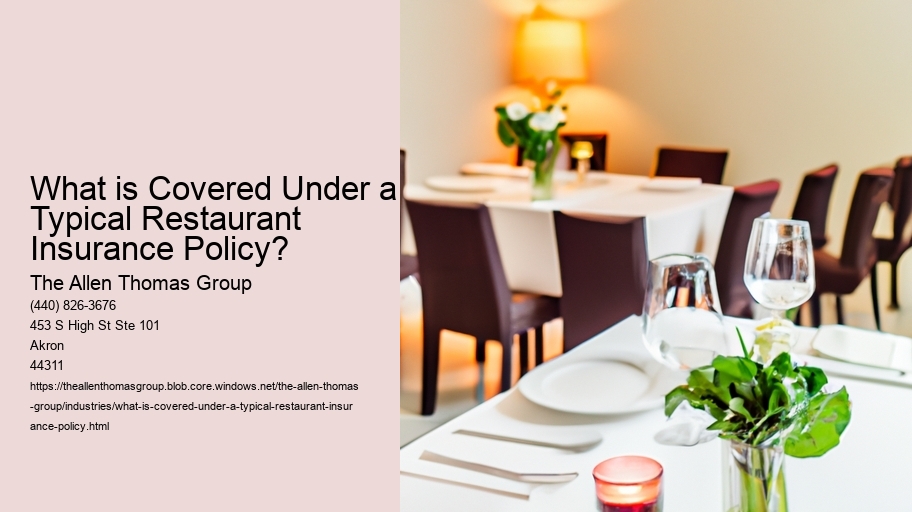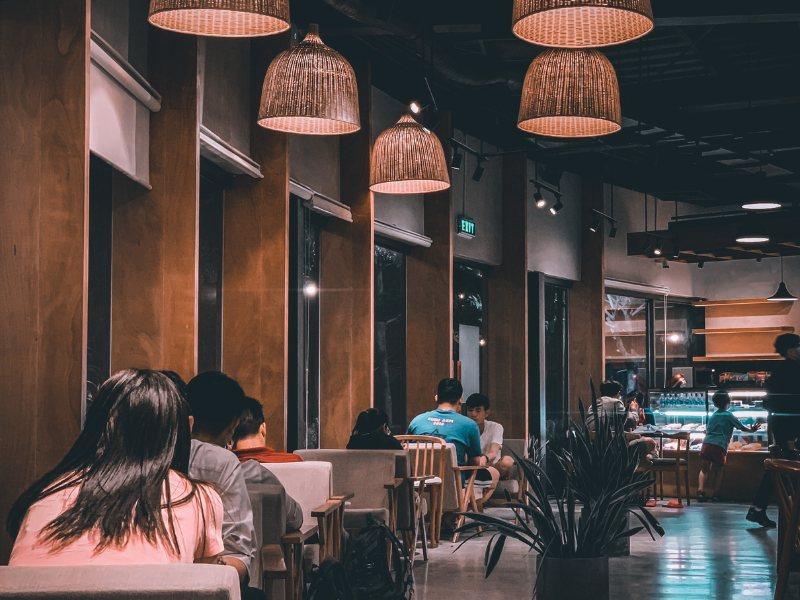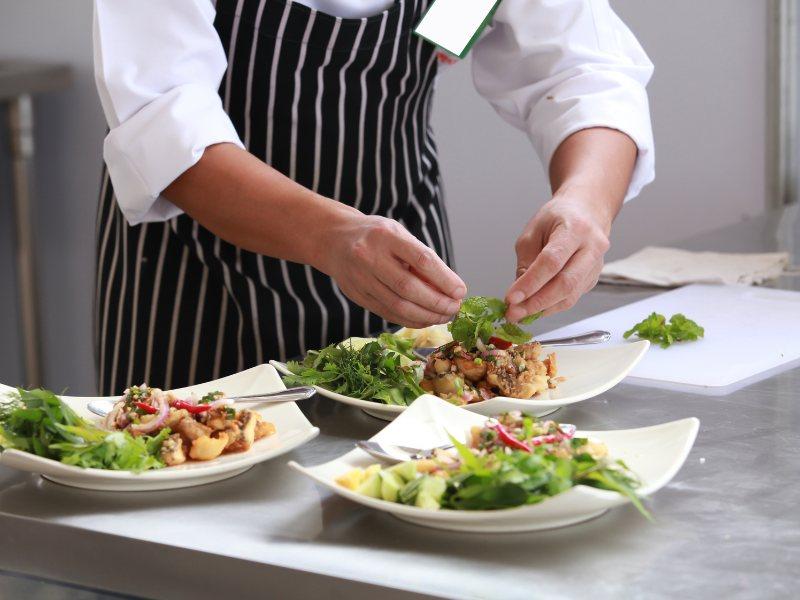

In the bustling and unpredictable world of the culinary industry, a restaurant is not just a place where delectable dishes are served; it is a dynamic hub where creativity meets commerce. Within this vibrant environment, the sanctity of the physical space-the very heart of the restaurant's operations-is paramount. This is where property insurance coverage comes into play, a cornerstone of a typical restaurant insurance policy designed to safeguard the tangible assets that compose the restaurant's physical presence.
restaurant insurance agency . When we refer to property insurance coverage for a restaurant, we are talking about a safety net that encompasses the structural integrity of the building itself. Should the unexpected occur-a fire that chars the walls, a storm that tears off a portion of the roof, or a burst pipe that floods the dining area-property insurance stands as a bulwark against these calamities. It ensures that the edifice which houses gastronomic dreams is protected against many of the forces that could otherwise spell disaster.
Beyond the building, property insurance extends its protective embrace to the very tools of the culinary trade. From the stoves and ovens that are the engines of flavor to the refrigerators and freezers that guard the freshness of ingredients, insurance coverage is an indispensable ally. This coverage typically extends to other equipment as well, like the HVAC system that maintains the ambiance and the point-of-sale systems that keep commerce flowing.
Not to be overlooked is the inventory-the cornucopia of produce, meats, spices, and other ingredients that are the palette from which chefs create their masterpieces. Property insurance covers this inventory, ensuring that should spoilage or contamination occur as a result of a covered peril, the restaurant is not left bearing the full financial burden of such losses.
However, while property insurance coverage is comprehensive, it is not all-encompassing. Restaurateurs must be acutely aware of what their policy includes and excludes. Certain natural disasters, for example, may not be covered under a standard policy and might require additional riders or separate policies altogether. Similarly, while property insurance covers many forms of physical damage, it does not typically cover losses incurred due to business interruption-a separate, but equally crucial, component of a restaurant's insurance portfolio.
In essence, property insurance coverage within a typical restaurant insurance policy provides a protective shell around the physical assets that are integral to a restaurant's success. It is a fundamental piece in the complex puzzle of risk management, allowing restaurateurs to focus on what they do best-creating and serving culinary delights-while resting assured that their establishment stands on secure financial footing, even in the face of unexpected events.
In the bustling world of hospitality, a restaurant stands as a beacon of comfort and enjoyment, a place where patrons come to savor delicious food, bask in good company, and create memorable experiences. However, amidst the clinking of glasses and the symphony of sizzling dishes, there lies the ever-present possibility of unexpected incidents. This is where General Liability Insurance enters the culinary stage, offering restaurant owners a safety net against a smorgasbord of potential claims.
Imagine, if you will, a scenario where a customer, while navigating the cozy confines of a dimly lit bistro, trips over a misplaced chair and suffers an unfortunate fall, leading to a bodily injury. Or consider an overzealous celebration where a champagne cork flies astray, causing property damage to a patron's cherished heirloom watch. These are not merely hypothetical situations but real-world events that can give rise to substantial financial and legal repercussions for a restaurant owner.
General Liability Insurance is the armor in the restaurateur's defense, designed to protect against such claims of bodily injury, where the well-being of a customer has been compromised within the restaurant's premises. It is the shield against accusations of property damage, ensuring that if the restaurant's operations inadvertently harm a patron's belongings, there's a recourse to address the monetary claims that may follow.
Moreover, this insurance extends its coverage umbrella to include personal injury, a domain that encapsulates the more intangible harms such as defamation, slander, or the violation of privacy that could occur within the restaurant's sphere of influence. In an era where one's reputation can be as fragile as fine china, this aspect of insurance provides a crucial layer of protection.
A typical restaurant insurance policy, with General Liability Insurance as its cornerstone, is not merely a contractual obligation or a financial safeguard; it is a testament to the owner's commitment to the safety and satisfaction of their clientele. It is an understanding that in the dance of hospitality, accidents can happen, and when they do, the restaurant is prepared to handle them with grace and responsibility.
In essence, General Liability Insurance for restaurants is more than just a policy-it's a promise. A promise that extends from the kitchen's heart to the dining room's soul, assuring that even if misfortune were to visit, it would not mar the spirit of culinary delight that the restaurant endeavors to serve, course after course, to each guest who walks through its doors.
In the bustling world of culinary delights and dining experiences, restaurant owners are not only tasked with the pleasure of satisfying their patrons' palates but also with the intricate challenge of ensuring that their establishment operates within the safety net of comprehensive insurance policies. Among the various forms of coverage that a typical restaurant insurance policy might include, Liquor Liability Insurance stands as a crucial safeguard for those establishments that serve alcohol.
Imagine a scenario where a patron, after enjoying a meal accompanied by a few drinks, becomes involved in an incident that leads to injury or property damage. If this incident is traced back to your establishment, and it is determined that the patron was over-served, your restaurant could be facing a serious lawsuit. This is where Liquor Liability Insurance becomes your financial bulwark.
Liquor Liability Insurance is designed to protect a restaurant from the legal and financial consequences that arise from such incidents. It covers the costs associated with legal defense, court fees, and any settlements or judgments that may be awarded to the claimant if the restaurant is found liable. This type of insurance is not just a blanket policy; it is tailored to address the unique risks associated with serving alcohol, which can vary widely from one jurisdiction to another, given the differing state and local regulations.
The coverage extends to a range of potential situations, from a patron slipping and falling after having one too many, to an alcohol-fueled altercation that results in injuries. It's not just about the dramatic events that can unfold; it also encompasses the more subtle instances where a restaurant might inadvertently serve alcohol to a minor or someone who is visibly intoxicated, both of which could result in legal action.
Having Liquor Liability Insurance does not absolve a restaurant of its responsibilities when it comes to serving alcohol. It does not give license to serve recklessly but rather provides a layer of financial security should all the conscientious efforts of staff training and policy enforcement fail to prevent an alcohol-related incident. It is an acknowledgment that even with the best practices in place, the potential for human error remains.
In summary, Liquor Liability Insurance is an indispensable component of a typical restaurant insurance policy for those establishments that serve alcoholic beverages. It offers peace of mind and financial protection, allowing restaurant owners to focus on what they do best: creating delicious food and memorable experiences for their guests, knowing that they have a plan in place for the unexpected. With this coverage, restaurants can responsibly navigate the complexities of liquor service, maintaining their commitment to safety and legal compliance amidst the dynamic backdrop of hospitality.
What is the Cost of Restaurant Insurance for Small to Medium-Sized Eateries?

When we talk about the bustling and often unpredictable world of restaurants, the term "Workers' Compensation Insurance" becomes particularly significant. This mandatory coverage is an essential part of a typical restaurant insurance policy, providing a safety net for those who serve, cook, and manage our favorite dining places.
Imagine the daily hustle in a restaurant kitchen: chefs working with hot stoves, sous-chefs slicing through ingredients at lightning speed, and servers navigating crowded dining rooms. In such a fast-paced environment, the risk of injury or illness as a direct result of workplace duties is not just a possibility but a reality that many face. That's where Workers' Compensation Insurance comes into play.
This form of insurance is designed to offer financial protection and peace of mind to employees. Should a chef suffer a burn, a server slip on a wet floor, or a dishwasher develop a skin condition from constant exposure to cleaning chemicals, Workers' Compensation Insurance steps in. It ensures that medical expenses are covered without the financial burden falling solely on the injured party. Moreover, it provides a portion of wage replacement if the employee is unable to work due to the injury or illness.
Beyond the immediate medical costs and lost wages, Workers' Compensation may also cover rehabilitation expenses, helping employees make a full recovery and return to work. In more severe cases, where long-term care or disability is a consequence of the work-related incident, the policy would provide the necessary ongoing support.
However, the benefits of Workers' Compensation Insurance extend beyond the employees to the employers themselves. By having this coverage as part of their insurance policy, restaurant owners protect their business from potential lawsuits and ensure compliance with state laws, which typically require this type of insurance. It also fosters a caring workplace culture, showing staff that their well-being is a priority.
In sum, Workers' Compensation Insurance is a critical component of a restaurant insurance policy. It addresses the inherent risks of the food service industry, offering a form of collective assurance that both employees and employers value. While we hope that accidents and illnesses are rare, this insurance stands as a pillar of support, reinforcing the stability and resilience of those who bring life to the culinary world we so enjoy.
In the bustling world of culinary delights, restaurant owners are not just artisans of taste but also savvy entrepreneurs who must navigate the complex waters of business risks. A critical safeguard in their arsenal is a comprehensive restaurant insurance policy, tailored to address the unique exposures faced by food service establishments. Among the various protections offered, Food Contamination and Spoilage Coverage emerges as a vital component, designed to insulate businesses from the financial repercussions of unforeseen incidents affecting their perishable goods.
Imagine, if you will, the intricate dance that takes place in a restaurant's kitchen: fresh produce, choice cuts of meat, and a myriad of dairy products pirouette in refrigerated harmony, waiting for their cue to take center stage in a delicious symphony of flavors. But what happens when the music stops? When a power outage, equipment malfunction, or a contaminating intruder breaches the sanctity of the refrigerated gallery?
That's where Food Contamination and Spoilage Coverage steps into the limelight. This insurance is the restaurateur's assurance that when inventory is lost due to contamination-be it from a pathogen, a chemical ingress, or a cross-contamination mishap-the financial burden does not fall squarely on their shoulders. Spoilage can also occur due to a breakdown in refrigeration, often the result of mechanical failure or power loss. In such instances, this coverage helps to shoulder the cost of replacing the spoiled items, ensuring that the restaurant can resume normal operations with minimal disruption.
Furthermore, this coverage is not just about reimbursing the cost of lost goods; it's also about preserving the reputation of the establishment. Foodborne illnesses can have a disastrous impact on a restaurant's standing in the community. By swiftly addressing contamination issues and ensuring that no compromised ingredient finds its way onto a patron's plate, restaurants can maintain the trust and confidence of their clientele.
In a typical restaurant insurance policy, Food Contamination and Spoilage Coverage is often complemented by other forms of protection, such as General Liability Insurance, which covers third-party claims of bodily injury or property damage, and Business Interruption Insurance, which helps recover lost income and pay for operating expenses if the business is temporarily closed. These, combined with coverage for the physical assets and potential legal liabilities, form a safety net that allows restaurant owners to focus on what they do best-crafting culinary experiences-safe in the knowledge that the less palatable aspects of business risk are well managed.
In conclusion, Food Contamination and Spoilage Coverage is an indispensable slice of the restaurant insurance pie. It ensures that when faced with the unpredictable, the financial health and the reputation of the business are preserved. For any restaurant owner, this coverage isn't just a policy-it's peace of mind, served with a side of financial security.


When restaurateurs pour their passion and resources into their culinary establishments, they're not just serving up meals-they're fostering a vibrant community hub, a place of comfort, and a source of livelihood for many. However, the path of running a restaurant is fraught with uncertainties. A kitchen fire, a natural disaster, or even a mandated shutdown due to health concerns can halt operations and threaten the financial stability of the restaurant. This is where Business Interruption Insurance steps in, acting as a safety net, ensuring that the temporary closure doesn't lead to permanent financial damage.
Business Interruption Insurance is designed to cushion the financial blow that comes with unexpected pauses in service. Under a typical restaurant insurance policy, this coverage serves as a critical component, offering financial protection against the loss of income when a restaurant must close temporarily due to a covered peril.
Imagine a scenario where a fire causes significant damage to the kitchen. While the fire itself may be covered under a property insurance policy, the lost revenue during repairs can be devastating. Business Interruption Insurance aims to replace this lost income, providing the funds necessary to cover ongoing expenses such as rent, utilities, and employee wages. This financial support is vital for maintaining the stability of the business and the well-being of employees who rely on the restaurant for their livelihood.
Additionally, this type of insurance often extends to cover more than just lost income. It may also address the costs associated with relocating to a temporary location if necessary, or increased expenses that arise from working out of a temporary space. Furthermore, if a restaurant relies heavily on a particular season or event for a significant portion of its annual revenue, Business Interruption Insurance can help recoup losses if the business is unable to operate during that critical time.
It's important for restaurant owners to closely review their policies with their insurance providers to understand the specifics of their coverage. Typically, Business Interruption Insurance is activated only when the cause of the interruption is a peril included in the policy, such as fire, storm damage, or certain types of water damage. It's also essential to understand any waiting periods that may apply before the coverage kicks in, and the duration for which the policy will continue to pay out.
In conclusion, Business Interruption Insurance is a vital piece of the puzzle in a typical restaurant insurance policy. It provides the financial stability needed to navigate through the choppy waters of unforeseen closures, enabling restaurants to emerge from the trials of temporary shutdowns without losing their place in the heart of their community.
When considering the protective umbrella of a typical restaurant insurance policy, it is important to acknowledge that while some coverages are standard, the unique risks faced by each establishment may necessitate exploring additional coverage options. These specialized insurances are designed to fill the gaps left by general policies and provide a comprehensive shield against the diverse threats that restaurants encounter in their day-to-day operations.
One such additional option is cyber liability insurance. In an era where digital interactions are commonplace, even restaurants are not immune to the risks of cyber-attacks and data breaches. With the proliferation of online reservations, delivery services, and digital payment systems, the potential for cyber threats increases. Cyber liability insurance helps protect against losses related to data breaches, such as customer credit card information theft, and can cover the costs associated with legal fees, customer notification, and even public relations efforts necessary to rebuild a damaged reputation.
Another crucial coverage that restaurant owners should consider is employee dishonesty insurance. This safeguards the business from financial losses due to acts of theft, fraud, or embezzlement by employees. The hospitality industry, with its high volume of cash transactions and inventory, is particularly vulnerable to such incidents. Employee dishonesty coverage can provide a safety net, ensuring that the business can recover from dishonest acts without bearing the entire financial burden.
Special event insurance is also a key consideration for restaurants that host occasions such as weddings, corporate events, or large-scale parties. These events often come with increased risks, including property damage, alcohol-related incidents, and third-party injuries. Special event insurance is tailored to address these increased liabilities, offering protection that extends beyond the scope of a general liability policy. This type of insurance can be customized according to the event's specific needs, ensuring that the restaurant is adequately covered for any eventualities that might arise during these special occasions.
In conclusion, while a typical restaurant insurance policy provides a solid foundation of coverage, it is the additional options like cyber liability, employee dishonesty, and special event insurance that complete the edifice of protection. These specialized insurances are not mere add-ons but essential components that address the nuanced and evolving risks of the restaurant industry. By considering these additional coverage options, restaurant owners can operate with greater confidence, knowing that their establishments are well-protected against an array of potential threats.
